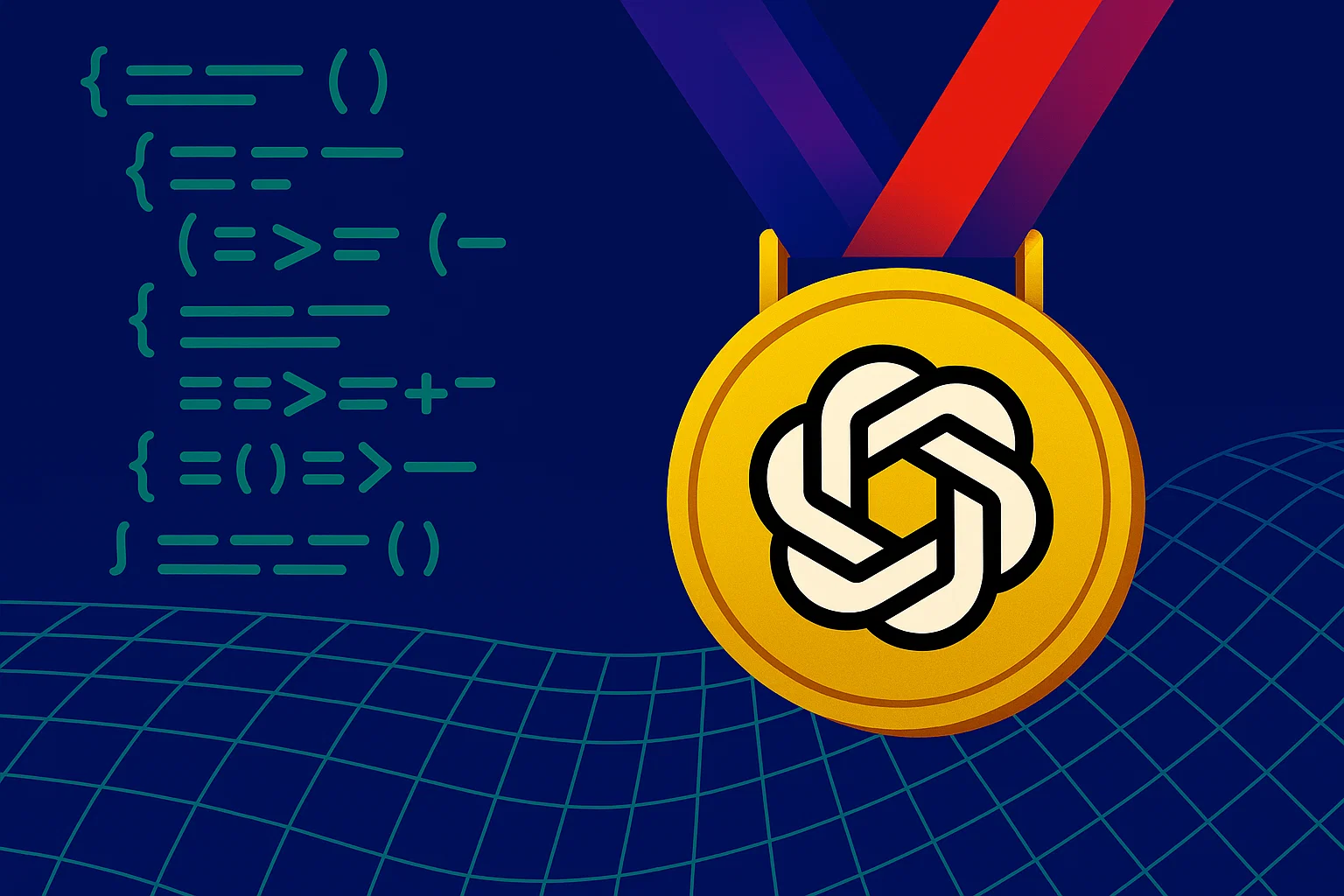OpenAI outperforms humans and Google at the world's top collegiate programming contest

An OpenAI system has solved every problem at the world’s most prestigious collegiate programming championship, outperforming not only human competitors but also Google's Deepmind model.
At the International Collegiate Programming Contest (ICPC) World Finals 2025, OpenAI's system achieved a perfect score by solving all 12 tasks. According to the company, that performance would have been enough to secure first place if it had been competing as a human team.
OpenAI says the system competed under the same conditions as students. It received the problem set in the standard PDF format and had a five-hour time limit to submit solutions. Submissions were sent directly to an official ICPC judge, who evaluated them in parallel with human entries. The company emphasized that no special adjustments were made for the contest.
The announcement comes shortly after Google Deepmind claimed its upgraded Gemini 2.5 Deep Think system reached gold-medal level at the same competition. Gemini solved 10 out of 12 problems, including Problem C, which no human team managed to solve. Still, it failed on two other problems. With a flawless 12 out of 12, OpenAI's entry surpassed Deepmind's result.
GPT-5 and an experimental model secured the win
OpenAI explains that the system was built from an ensemble of general-purpose reasoning models, none of which were trained specifically for the ICPC. It used GPT-5 alongside an internal experimental reasoning model. Both generated candidate solutions, with the experimental model responsible for deciding which ones to submit.
GPT-5 produced correct answers for 11 of the 12 problems, which the experimental model selected for submission. The final and hardest task was solved by the experimental model itself after GPT-5 struggled with it. That problem required a total of nine submissions before the solution was accepted. For comparison, the best human team solved 11 out of 12.
OpenAI highlights this as evidence that more sophisticated models capable of deeper reasoning and longer computation can succeed where others fail. The fact that GPT-5 carried most of the workload also underscores its position as one of the most capable AI models currently available to the public.
The company frames the win as part of steady progress. The same models have already produced gold-level results at the International Mathematical Olympiad and the International Olympiad in Informatics. Mostafa Rohaninejad, who worked on the project, called the ICPC performance a fitting conclusion to this streak, pointing to the systems' versatility. He added that the next frontier will be systems that can discover new knowledge, which he described as the true milestone.
AI News Without the Hype – Curated by Humans
As a THE DECODER subscriber, you get ad-free reading, our weekly AI newsletter, the exclusive "AI Radar" Frontier Report 6× per year, access to comments, and our complete archive.
Subscribe nowAI news without the hype
Curated by humans.
- Over 20 percent launch discount.
- Read without distractions – no Google ads.
- Access to comments and community discussions.
- Weekly AI newsletter.
- 6 times a year: “AI Radar” – deep dives on key AI topics.
- Up to 25 % off on KI Pro online events.
- Access to our full ten-year archive.
- Get the latest AI news from The Decoder.